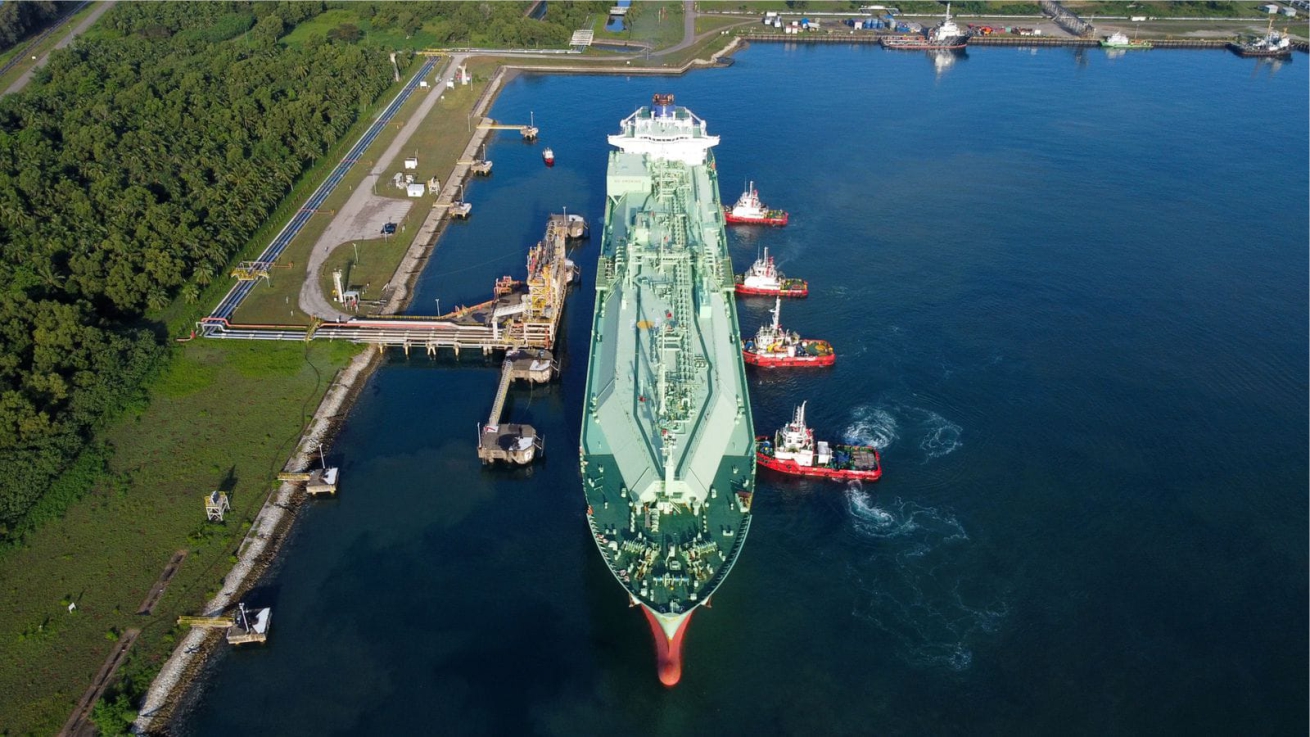Kembali Ke Beranda
6 Mar 2024
Through LNG, PGN Fulfills Customer Needs and Maintains National Gas Balance Commitment
Jakarta – As part of PT PGN Tbk’s commitment as the Subholding Gas of PT Pertamina (Persero), in optimizing the utilization of natural gas, especially for domestic industries and in adapting to business environmental conditions, PGN is realizing this commitment by strengthening supply security, which serves as the foundation for optimizing customer service. PGN is also strengthening its infrastructure and distribution efforts while balancing the national natural gas supply by providing Liquefied Natural Gas (LNG).
PGN's Director of Sales and Operations, Ratih Esti Prihatini, stated that LNG is the solution to meeting natural gas needs and is often referred to as the energy of the future. “LNG is a more flexible solution for transporting natural gas from sources that are far from pipeline networks and gas demand areas,” she explained at the Customer Business Forum event in Tangerang, March 6, 2024.
In fact, as stated by the Ministry of Energy and Mineral Resources (ESDM), the current natural gas needs cannot always and continuously be met by sources already connected to pipeline infrastructure. Existing supply sources are experiencing a natural decline, as reflected by the continuing decrease in natural gas production from long-operating wells.
One example is the gas supply for PGN from the Corridor Block in South Sumatra, which only supplies about 440 MMSCFD of natural gas at the start of 2024. Previously, this block was able to supply more than 500 MMSCFD in 2022 and 2023. The realized gas distribution volume in 2024 has decreased compared to 2022 and 2023, which were still at 850 MMSCFD.
"We inevitably need to get accustomed to LNG as a solution for the national gas balance amid the increasing demand for natural gas, especially for industries. This initiative is part of PGN's effort to fulfill natural gas needs for customers and optimize the use of natural gas as a transition energy. With management of 90% of the national gas infrastructure through various transportation modes, both pipeline and non-pipeline, such as Floating Storage Regasification Units (FSRU), Land-Based Energy Terminals, SPBGs, MRUs, and LPG Processing Plants, as well as the ability to integrate all natural gas potential across the country in various types of gas molecules, PGN is confident it can continue to provide reliable, competitive, and sustainable energy services to customers," Ratih explained.
Ratih emphasized that the presence of LNG is not meant to replace pipeline gas. PGN will continue to optimize pipeline gas volume allocation, so in cases of supply shortages or unavailability from suppliers, LNG will be the solution. “Customers also need to understand that, unlike pipeline gas, which has relatively fixed pricing, LNG prices are subject to fluctuations as they are determined by market mechanisms,” she continued.
Furthermore, the LNG delivery chain is longer compared to the gas pipeline delivery chain. This is due to additional processes such as cooling, transportation, storage, and regasification. Despite this, LNG remains more efficient compared to other fossil energy sources, while also being environmentally friendly.
Kembali Ke Beranda











